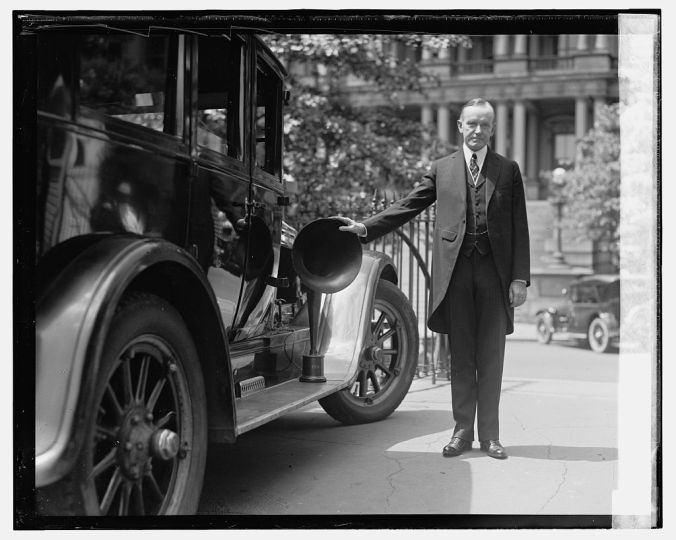
Here is an interesting article by Gil Press over at Forbes on Coolidge and his influence on radio.
It must be pointed out that certain details, like the author’s peculiar understanding of a “political speech” and the assertion that Coolidge’s father died shortly after his son’s landslide victory in 1924, are simply not accurate. The February 22, 1924 speech was neither the first Presidential broadcast of its kind nor was it a political address. It marked the birthday of George Washington, hardly a topic anyone would characterize as politically partisan. As for the President’s father, Colonel John Coolidge would pass away in March 1926 while Coolidge won his landslide in November 1924.
Despite the historical imprecision, the author still gives us much to consider on both the status of radio in the 20s and what made it so appealing.
The development of the radio in the Coolidge Era was an illustration in what makes America so meaningful for those who understand and cherish her. What people loved most was the opportunity to discover on their own, to cross hitherto uncrossed territory through each one’s interests and abilities, the right to walk through (or even choose not to) the open door of one’s unique dreams, the refusal to merely surrender one’s vision for something greater than median subsistence, to resolve not to abandon one’s quest for intangibles that others consider impossible, unrealistic, or unfair to the rest of us.
The radio was less about the programming content than the occasion to reach into and explore what had previously been unattainable distances, unreachable achievements. It is reminiscent of what Coolidge would say on another occasion, paraphrased here: The power of our constitutional system rested on the opportunity to pursue what each individual could imagine, limited least by regulation and most by each one’s talent and creativity. The rights protected by our Constitution were not requirements that all must own or acquire certain things but the protection of the right to own (or give away) what we earn. What we do with that right is up to each of us. Our system was not constituted for the guarantee of certain material outcomes.
The goal never was to keep everyone perfectly alike or economically assigned, closing the opportunity to rise for something above the average. Instead, it worked in harmonious synchronization with a quality that resides eternally in the human spirit. In attempting to equally distribute it, suppressing and squelching the freedom to choose, government always fails in the end. That is why the Radio Act Coolidge signed in 1927 succeeded where other attempts at legislation fail, it expanded the range of opportunity for everyone to make use of a medium that leveled the playing field and increased the freedom to participate. It demonstrated how spacious the innovative potential of radio could be when all are given the opportunity to contribute. This was thanks, in part, to the wisdom of Calvin Coolidge but, more than that, thanks to Americans who always find ways of rising to the occasion when opportunity is allowed to thrive.